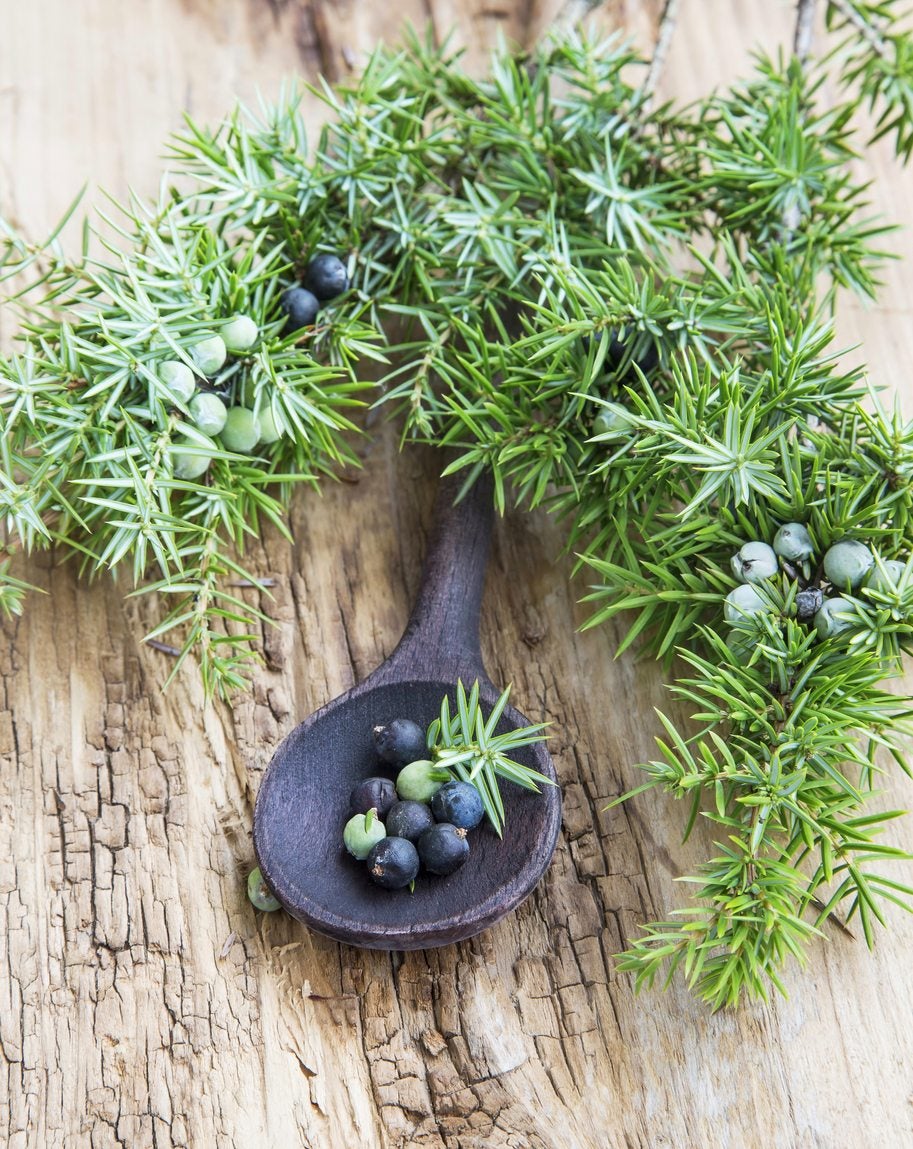Juniper Plant Benefits: How To Use Juniper For Herbal Use


You may know juniper as the most widely distributed evergreen on the planet. But it’s a plant with secrets. Juniper plant benefits include both juniper herbal uses and also culinary. If you’d like more information about juniper shrubs as herb plants, read on.
Juniper as Herb Plants
Juniper plant benefits include their beauty in the garden. Juniper is a popular evergreen shrub that generally stays under 10 feet (3 m.) tall. It is native to Europe, Asia, and North America. The most common variety in this country is Juniperus communis. Juniper shrubs have needle-like leaves and grow seed cones. The outer scales of the cone are a deep blue merging on black. Gardeners refer to these as juniper berries. These berries are used in herbal medicine and give juniper the status of herb plants. The time it takes for juniper scales to mature varies depending on the sex of the tree. Scales from male juniper mature in 18 months while female juniper scales take 2 to 3 years to ripen. Many juniper herbal uses start with scales. Some herbalists argue that immature juniper scales are better medicinally, while others insist that mature scales are more potent.
How to Use Juniper for Herbal Use
How is juniper used herbally? Juniper extracts can be used medicinally or as culinary flavoring. As a medicine, it can be taken internally, inhaled, or applied topically. In Alaska, the Tanainas burn juniper needles on top of a hot wood stove to create an incense. This provides a wonderful smell, and also can aid with a cold. Many other juniper herbal uses start with extracts from the juniper berries/scales. The extracts contain terpinen-4-ol, a compound that stimulates the kidneys. They also contain amentoflavone, another compound with antiviral properties. If you want to burn juniper needles, you can strip some from your garden shrub and begin. It doesn’t take a lot to create a powerful smell. If you are wondering how to use juniper for herbal uses other than burning it, you can purchase juniper commercially in various forms. Look for capsules of oil, teas, and lotions. Some people ingest juniper, often in tea form. This is said to be helpful in treating bronchitis. It may also numb pain, fight inflammation, and increase production of stomach acid. It is also reputed to disinfect the urinary tract. Herbal practitioners suggest that drinking juniper tea helps to flush excess fluids from the body. This diuretic effect gets rid of the body’s excess uric acid. High in natural insulin, juniper may also reduce blood sugar levels. You can also apply essential oil of juniper topically. Rubbed on the skin, it may help with skin issues like acne or athlete's foot. Some use it to treat warts, skin growths, cystitis, psoriasis, and eczema. In addition to scale-berry oil, an oil can be made from juniper wood. It is called cade oil and is considered an important treatment of psoriasis on the scalp. Juniper oil has antibacterial properties, so it can be used to treat skin wounds and snakebites. Rubbing the oil into the skin may also help with joint and muscle pain. Disclaimer: The contents of this article is for educational and gardening purposes only. Before using ANY herb or plant for medicinal purposes, please consult a physician or a medical herbalist for advice.
Sign up for the Gardening Know How newsletter today and receive a free copy of our e-book "How to Grow Delicious Tomatoes".

Teo Spengler is a master gardener and a docent at the San Francisco Botanical Garden, where she hosts public tours. She has studied horticulture and written about nature, trees, plants, and gardening for more than two decades, following a career as an attorney and legal writer. Her extended family includes some 30 houseplants and hundreds of outdoor plants, including 250 trees, which are her main passion. Spengler currently splits her life between San Francisco and the French Basque Country, though she was raised in Alaska, giving her experience of gardening in a range of climates.